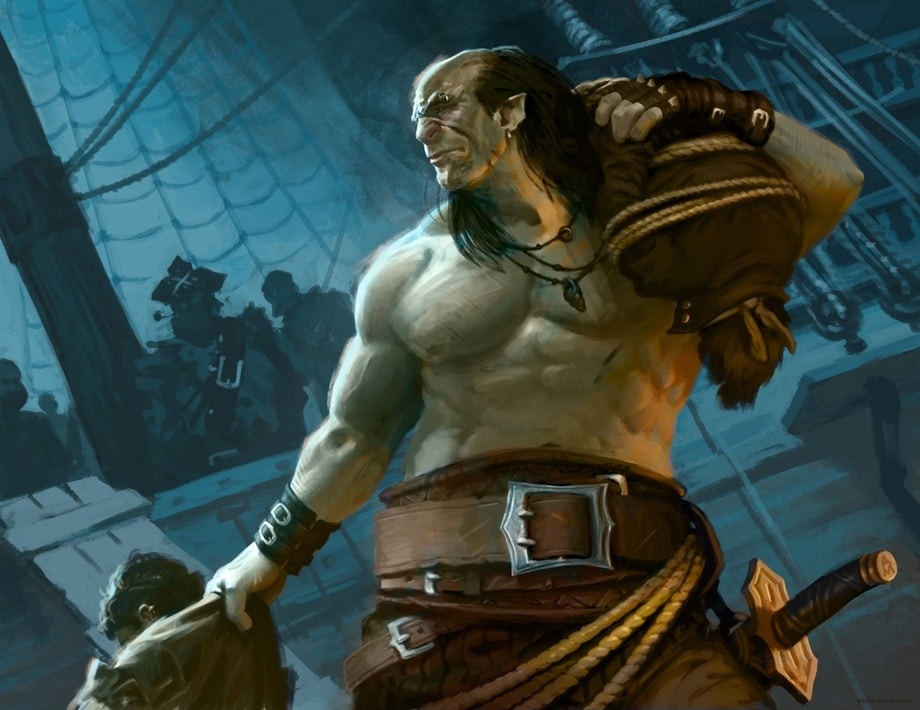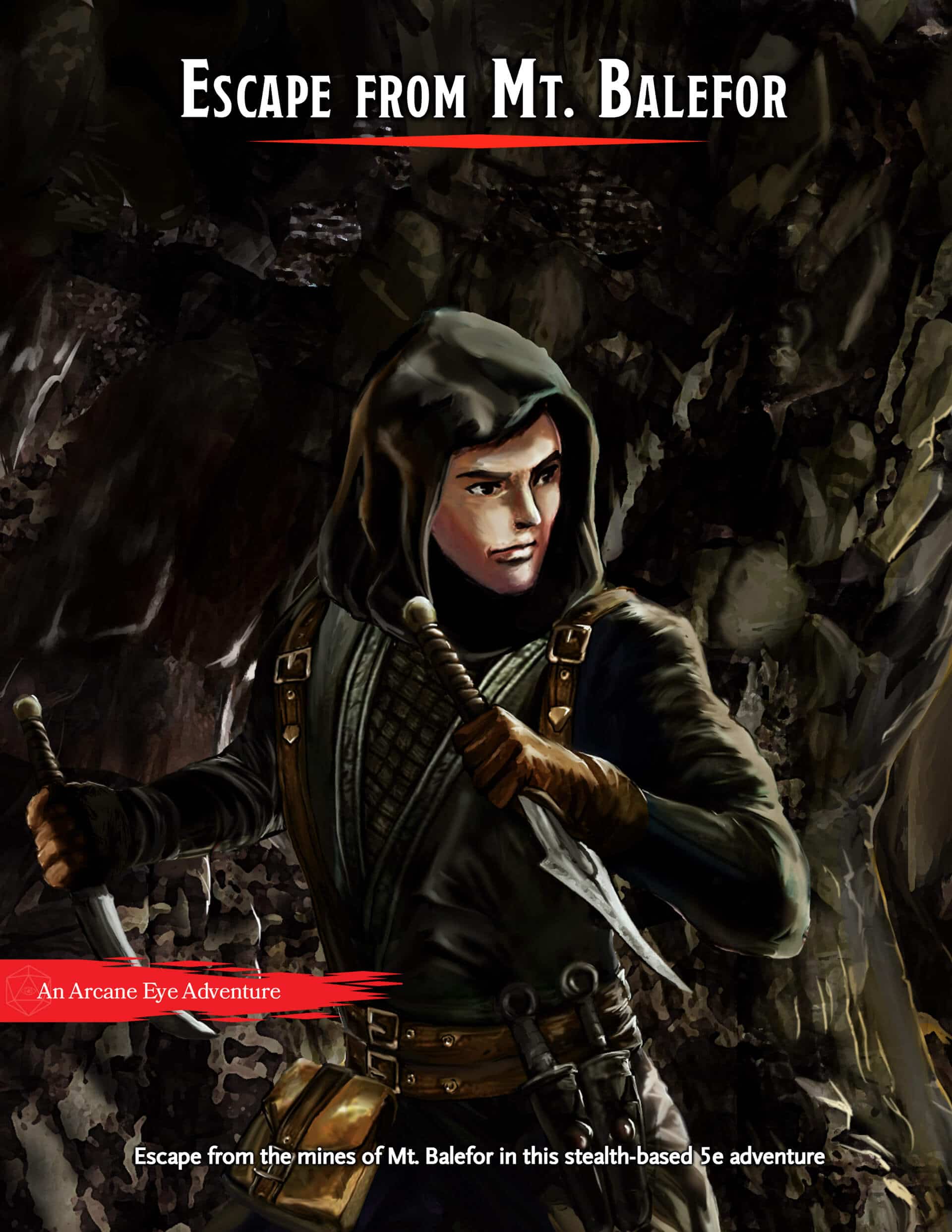Orc Guide 5e
Published on July 14, 2021, Last modified on May 5th, 2022

Aaron Miller - Wizards of the Coast - Ruthless Knave
What is this guide?
This guide is meant to give you an idea of whether or not the orc will be right for your 5e character build.
The color code below has been implemented to help you identify, at a glance, how good that option will be for your orc. This color coding isn’t a hard and fast rule; there are plenty of sub-optimized options out there that will be viable to your party and will be fun to play.
- Black is a trait shared by many races and or will not impact the effectiveness of your character build
- Red isn’t going to contribute to the effectiveness of your character build at all
- Orange Situationally good, but a below-average option otherwise
- Green is a good option
- Blue is a great option, you should strongly consider this option for your character
- Sky Blue is an amazing option. If you do not take this option your character would not be optimized
Tasha's Cauldron of Everything Update
Tasha's Cauldron of Everything has added the "Customizing Your Origin" option that may affect the ability score increases, languages, and proficiencies in this guide. To read more about this, visit our D&D Race Guide.
What are Orcs in 5e?
Source: Volo's Guide to Monsters
Orcs exist in many fantasy-related media. Typically portrayed as hulking, brutish humanoids with a thirst for blood, these beings have been given a fresh coat of paint depending on the setting in D&D. On Exandria, orcs are plagued by a curse and some have taken to following the law very strictly. On Eberron, orcs are known to be passionate and have a deep sense of faith within their communities. Whatever the circumstances of your campaign, don’t feel like you need to play your orc as stereotypically evil and barbaric.
Orcs are a playable character race originally found in Volo’s Guide to Monsters, but the updated version can be found in both Eberron: Rising from the Last War and Explorer’s Guide to Wildemount. The update has removed a stat decrease from the ASI of the orc, making them much more viable as a race option.
Orc 5e Traits
Ability Score Increase: +2 STR and +1 CON is a very non-subtle way of saying that orcs are ideal for melee tank builds. This stat line offers nothing for most other builds, however.
Size: Medium is the typical size of most races, and is neither good nor bad.
Speed: Orcs have a standard walking speed of 30 feet.
Darkvision: Darkvision is always great, but its advantage can be ruined if your party members do not also have it.
Aggressive: This is trait greatly increases your mobility on the battlefield, allowing you to close the distance between yourself and your target very quickly. The only downside here is that it uses a bonus action, and you may wish to use that for something else.
Powerful Build: Not everyone plays with strict carrying capacity limits, but Powerful Build can let you get away with some nonsense if you are a hoarder. Being able to push, drag, or lift more weight is more interesting and is likely to come up in a campaign.
Primal Intuition: Free skill proficiencies are one of the best things to see as a racial trait, especially if one of those options is Perception.
Sources Used in This Guide
- BR: Basic Rules
- GotG: Bigby Presents: Glory of the Giants
- SotDQ: Dragonlance: Shadow of the Dragon Queen
- ERLW: Eberron: Rising from the Last War
- EEPC: Elemental Evil Player’s Companion
- EGtW: Explorer’s Guide to Wildemount
- FToD: Fizban's Treasury of Dragon
- GGtR: Guildmasters' Guide to Ravnica
- MotM: Monsters of the Multiverse
- MToF: Mordenkainen’s Tome of Foes
- MOoT: Mythic Odyessys of Theros
- PAitM: Planescape: Adventures in the Multiverse
- PHB: Player's Handbook
- SAiS: Spelljammer: Adventures in Space
- SCoC: Strixhaven: A Curriculum of Chaos
- SCAG: Sword Coast Adventurer’s Guide
- TCoE: Tasha’s Cauldron of Everything
- TTP: The Tortle Package
- WBtW: The Wild Beyond The Witchlight
- VRGtR: Van Richten's Guide to Ravenloft
- VGtM: Volo's Guide to Monsters
- XGtE: Xanathar’s Guide to Everything
